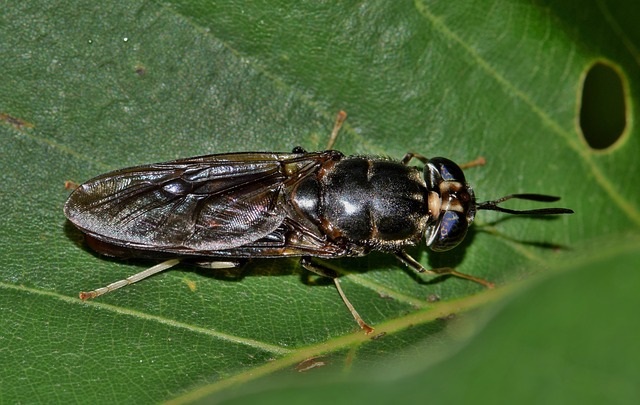
Converting food waste to animal feed using the magic of insects
- Home
- Converting food waste to animal feed using the magic of insects

AB Agri and Livalta are currently working with our partners at the “Insectrial Revolution” project to explore the viability of black soldier fly (BSF) for use in commercial fish feed. Our aim is to create a technology blueprint for nature’s perfect upscaling: The black soldier fly eats food waste such as rejected supermarket fruit and vegetables, brewers’ grains and coffee grounds — converting it to protein while leaving behind a natural fertiliser to help grow more food. Insects are a highly responsible way of producing protein, requiring less land and water than traditional protein sources.
Whilst hundreds of scientific studies have been conducted and hundreds of millions of pounds have been invested globally into validating the transformative potential of BSF farming techniques, the race is still on to demonstrate large-scale, profitable black soldier fly farming operations for animal feed.
The “Insectrial Revolution” was launched in October 2020 with £10 million of funding from Innovate UK, the UK’s innovation agency. The project is led by the London-based insect farming company Entocycle, and brings together a consortium of 12 partners providing the expertise needed for the complex farming and processing system as well as the agri-food value chain up to the end consumer:
AB Agri’s Innovation Director, Nell Masey O'Neill, explained: “Our role is to complement the work of the consortium’s technology and science partners. We are using our expertise and experience to ensure end products are viable and play an integral role in driving a more responsible supply of protein around the world.”
Livalta’s Aquaculture Specialist, Ingrid Lupatsch, said: “At Livalta, we believe the solution to the global protein challenge lies in technology, so we’re continuously assessing new technologies for the potential to produce responsible proteins at the scale, quality and cost required for commercial feed and food. Through this partnership, we will obtain critical data about feed safety, nutritional quality, digestibility and carbon footprint of our insect-based feed. Is it all about finding the right combination of feedstock and production technology.”
Entocycle’s founder Keiran Whitaker said: “The UK is making an ambitious commitment to becoming a leader in sustainable food production systems. Through the use of insects, we can guarantee local supply chains while making significant reduction to CO2 emissions. The positive environmental impact could be huge, helping to support the UK’s transition to a net zero economy and the restoration of natural ecosystems.”